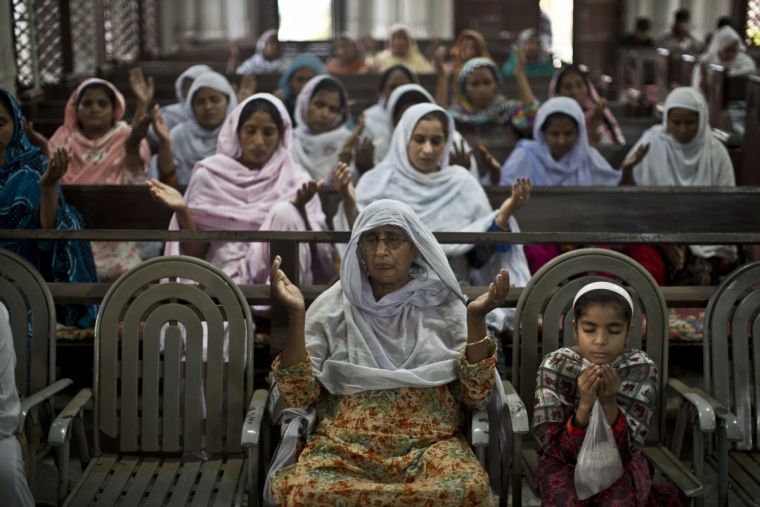Peshawar church offers counselling training after bombings

Several members of the Church of Pakistan's Peshawar Diocese have undertaken training to help them in supporting those affected by the suicide bombing outside All Saints Church last September.
Some 78 people, including an estimated 37 children, were killed in the blast when two suicide bombers carried out the attack on 22 September following a church service.
Islamic extremist group TTP Jundullah, which is linked to the Taliban, claimed responsibility for the violence.
"They are the enemies of Islam, therefore we target them," said the group's spokesman, Ahmed Marwat.
"We will continue our attacks on non-Muslims on Pakistani land."
Four months on from the bombing, the deadliest attack on Christians in Pakistan's history, many are still grieving the loss of friends and family members.
The Diocese of Peshawar has therefore decided to bring in some practical support, the Anglican Communion News Service reports. As part of this, seven church members were invited to travel to Lahore, the capital of Punjab province, for counselling training organised by Interserve.
"Still the Christian community of Peshawar is passing through a very difficult time full of grief after the blast at All Saints' Church, Peshawar," notes a spokesperson for the diocese.
"They need proper comfort and counselling. The diocese has deep concern about them and is struggling to provide them with spiritual counselling and comfort."
The seven were sent to learn how best to support those dealing with loss, grief and injury. They took part in sessions including 'Effective listening' and 'Overcoming grief'.
Fehmeeda William lost her husband and two children in the bombing. She herself was also injured as a result of the attack, and has since received spiritual and financial support from various charities and churches. The diocese also offered her nursing care, physiotherapy and psychological and spiritual counselling from a team of medical professionals, which she attributes to helping her on the road to recovery, in addition to her steadfast faith.
"I keep praying to God and he blessed me with patience and peace of heart. Although it's a great loss, as my children and husband will never come back, the Spirit of God is with me, and it consoles me all the time. Praise the Lord!" she said.
"I am mobile; I can walk with the help of a walking frame. I can socialise with others, and the healing process is still going on. Hopefully, with the grace of God, one day I will be fully recovered, but I will always be in debt to all those people who helped me and my family, especially my in-laws and Diocese of Peshawar which I am sure will never abandon its people."
The Pew Center recently named Pakistan the country with the "highest level of social hostilities involving religion", with religious extremism driving numerous attacks on members of minority faiths, most notably Christians, Hindus and Sikhs.
The UK government has called upon Pakistani authorities to protect its religious minorities from persecution, which often takes the form of false blasphemy charges – a crime punishable by death. Though the accused have traditionally had their death sentences overturned or commuted to life imprisonment, last month the Federal Shariat Court of Pakistan ordered that the death penalty be the "only punishment for a blasphemer", and charities working in the region are worried about the repercussions on religious minorities if this is adopted.
"The implementation of the order could see a dramatic increase in incidents of public justice and vigilante killings," says Nasir Saeed, Director of the Centre for Legal Aid, Assistance and Settlement (CLAAS-UK).
"We all know the blasphemy laws are being misused to settle personal scores, and this will be taken to another height and victims from religious minorities will become defenceless and more vulnerable if it becomes Shariah law.
"The international community has a duty to challenge the country on this issue," he asserts.
The UK's Attorney General Dominic Grieve MP has therefore urged the Pakistani government to "protect all law abiding citizens of the country" and work towards changing "the underlying prejudices" that drive persecution in the Muslim-majority nation.











